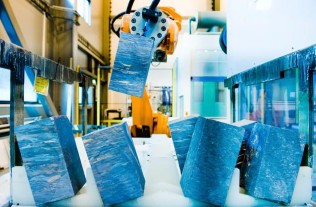because of increased demand and a positive price trend on solar grade silicon, elkem solar has decided to resume production at its plant in kristiansand, norway. during the production halt, the company has reduced costs and increased the value of its product.
the decision to resume production was made on january 28, and the ramp up to full capacity will begin immediately. “in the past years, the solar industry has been through a challenging period with overcapacity. as a consequence of this, elkem solar temporarily halted production. however, strong underlying demand growth and recent price increases has enabled elkem solar to restart production. we are currently experiencing increasing prices and demand for elkem solar silicon,” says elkem solar ceo inge grubben-strømnes.

reduced costs and increased value
the elkem solar plant has not been running at full capacity since late 2011. during the period, the company has carried out important improvement projects to reduce costs, adapt to customer needs and increase the value of products.
“independent tests in hyderabad, india, and alice springs, australia, have revealed 2.5 percent higher electricity production than modules produced with standard polysilicon. this effect is caused by improved temperature coefficient and electrical properties as well as the composition of trace elements in ess,” said torgeir ulset, vice president of sales & marketing in elkem solar.
the world’s cleanest and most energy efficient solar silicon production process
elkem solar has the world's cleanest and most energy efficient process for the production of silicon for solar cells. ess has been co2 certified in japan with a footprint of 1.2 grams of co2 per kilowatt-hour for 20-30 years.
as bluestar’s subsidiary, elkem is a world leader in silicon materials, castings, and carbon and solar grade polysilicon, with production facilities across norway, iceland and canada.
its solar business was established in 2009. it currently has 200 employees. it is capable of producing environmentally-friendly solar grade silicon, which only consume 25 percent as much energy as traditional solar silicon.